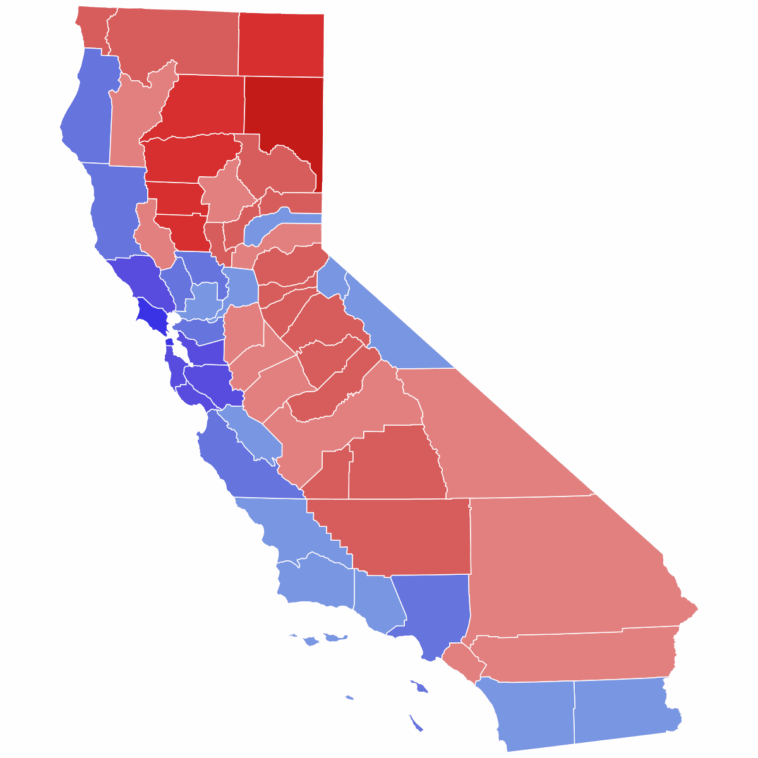Zohran Mamdani’s astonishing conquest in the recent New York Democratic mayoral primary has generated a stir that pervades the American political scene, most notably within the Democratic Party. A surge from the progressive wing led to Mamdani’s victory, posing the question whether this somewhat unexpected turn of events is the proof of the progressive wing’s might or merely an aberration, a result of unique circumstances unlikely to be duplicated elsewhere.
There’s an undeniable shift in the winds of the Democratic Party, and it appears to be veering towards the radical left. This is exemplified by Mamdani’s triumph, which many are suggesting could change the direction of the party, especially in states like California, which have recently been straying from progressive ideals. However, one can’t help but feel slightly apprehensive, as such a shift might not be representative of the overall populace.
Amid this excitement from the left, Mamdani’s overwhelming victory with 56% percent of the total vote needs to be examined in context. It’s not surprising considering he was up against Andrew Cuomo; a figure whose presence is strongly reminiscent of the old, out-of-touch Democratic establishment. Cuomo, seen as an emblem of outmoded governance, hardly appeared to be a formidable challenge for Mamdani.
Moreover, if you look at how Mamdani secured his victory, it basically came down to exploiting social media effectively — something quite easy for any candidate to replicate. Particularly in the densely multicultural milieu of New York City, Mamdani managed to win the Asian vote with a +15 advantage, Hispanic voters with a +6, and white voters with a +5. This diverse backing, however, might not translate to a nationwide ambassadorship, given the unique makeup of the city that could vastly differ from the demographic characteristics of other regions.
Mamdani’s victory, while heralded by some as a significant win for the progressive agenda, can also be viewed as a matter of right place, right time, benefiting from perfect storm conditions rather than universal appeal. New York City, renowned for its distinctiveness, offered Mamdani a platform that might not exist on an equal scale elsewhere. Thus, attributing this victory only to progressive dominance could be misleading.
However, the tidal wave of change doesn’t end here. Its ripples could reach as far as the sunny state of California. This raises the intriguing question: is there a chance for a far-left candidate to rise to prominence in the imminent gubernatorial election, following the footprints of Mamdani?
California, though celebrated as a Democratic stronghold, has been flirting with a shift back to centrist politics, contrasting with its traditionally left-leaning stance. It’s disconcerting for progressives that the political needle is veering towards the center, notably exemplified by the election of the centrist Democrat Daniel Lurie as San Francisco mayor.
Furthermore, California recently seemed to lean more to the right, reflected in the 2024 elections and the passing of Prop 36, which reinforced strict crime laws. Given the current political climate, it’s likely that Californians may shun the lure of a far-left gubernatorial candidate.
Certainly, progressives are eager for a turnaround following Mamdani’s victory. But their hope might be dissipated by a stern dose of reality. The recent recall of District Attorney Chesa Boudin due to outrage over some far-left policies serves as a sobering reminder that the state’s people have grown wary of the progressive agenda.
Speaking of political power plays, Kamala Harris, the former Vice President, stands as a critical factor in the prognosis of California politics. Though her position is currently leading most polls, her lack of commitment to run might create an opportunity for another far-left candidate to enter the race, thereby throwing the entire political landscape into chaos.
On the other hand, Harris’s likely run is far from being an assurance of her victory. Just as Mamdani’s victory throws progressive domination into doubt, her potential candidacy opens up the possibility of a significant defeat for the left. It’s a well-known fact that Harris’ political accomplishments are received with mixed views and it’s debatable whether her candidacy would elevate or further polarize the Democratic Party.
Ultimately, the Democratic Party finds itself on precarious ground. A potential tug-of-war is simmering between the extremist left and the historically more viable moderate wing of the party. It’s still unclear whether the scales will tip towards a radical left or a rational center.
Amid this turmoil, it’s crucial to remember that a singular victory from Mamdani doesn’t necessarily herald a progressive era in the Democratic Party. It’s a naïve discourse propagated by the left to overstate the significance of this single event and craft a narrative of a looming progressive reign.
In conclusion, while Mamdani’s win in the mayoral race stirred the stagnant waters of the Democratic Party, it does not necessarily imply an indomitable rise of the progressive branch. Politics, much like a pendulum, swings back and forth, and this single win does not confirm a sustained shift towards Paulocratic politics.

